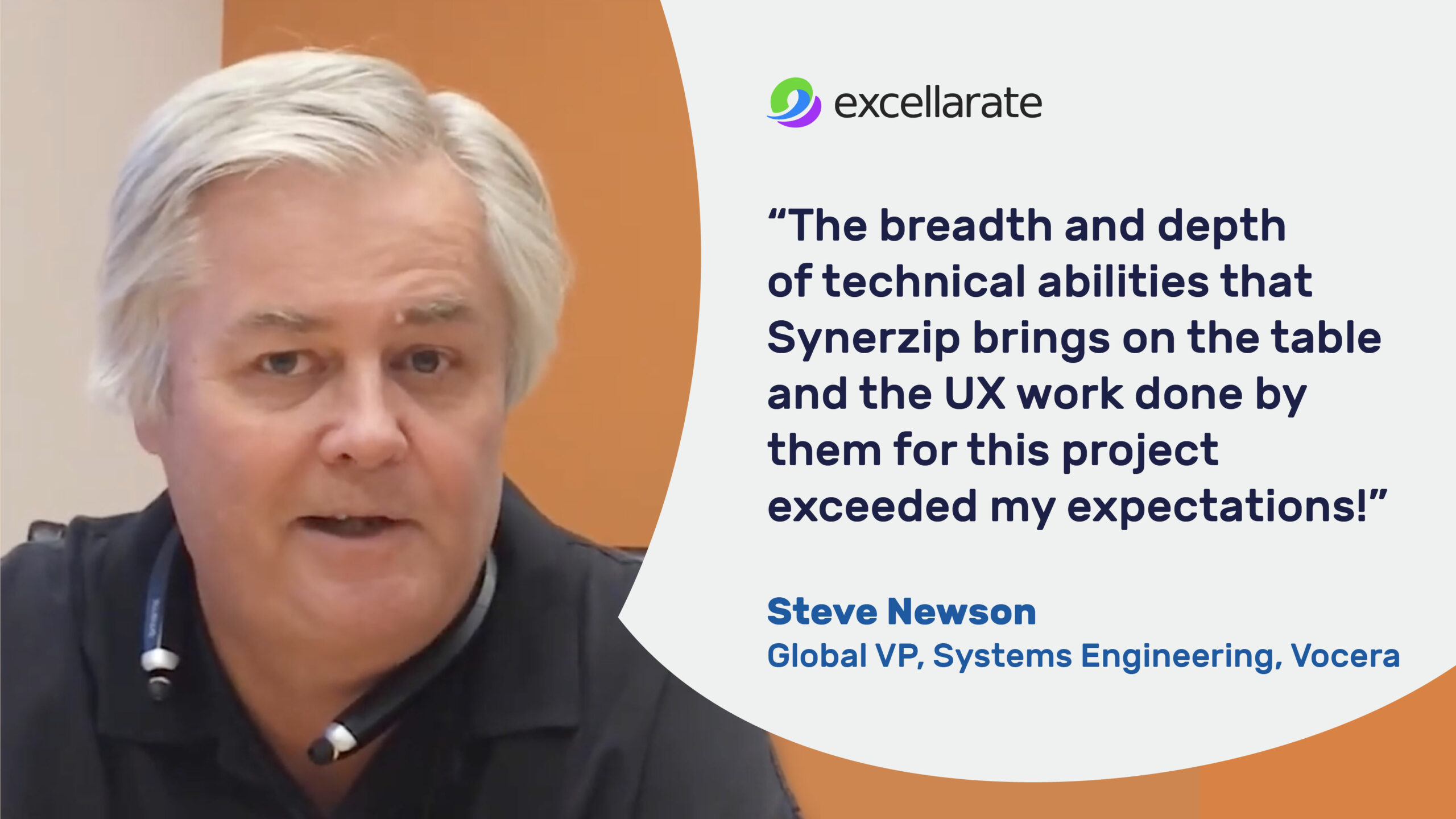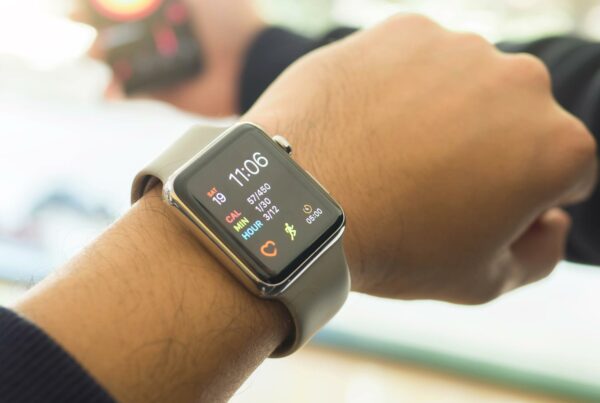Experential hospital and healthcare system visualizer
“The breadth and depth of technical abilities that Synerzip brings on the table and the UX work done by them for this project exceeded my expectations!”
Steve NewsonGlobal VP, Systems Engineering, Vocera

The Client
Vocera Communications is a recognized leader in clinical communication and workflow solutions for hospitals and healthcare institutions. Its mission is to simplify and improve healthcare professionals’ and patients’ lives while enabling hospitals to enhance the quality of care and operational efficiency. It does this with intelligent and integrated communication solutions in Healthcare.
The Vocera Platform is an intelligent ecosystem that connects all the people and information needed to deliver optimum patient care. As of now, Vocera supports 1,850+ hospitals and health systems worldwide, to enable care teams to text securely using smartphones or make calls with hands-free, wearable Vocera Badge.
In addition to Healthcare, Vocera is at home in luxury hotels, aged care facilities, retail stores, schools, power facilities, libraries, and more. Vocera solutions enable mobile users (patients, nurses, doctors, caregivers) to be safer and more productive by helping them to connect instantly with other people and access resources or information quickly. Vocera has made it to the list of Forbes 100 Most Trustworthy Companies in America.

The Challenge
Vocera partnered with Synerzip in 2018 to extend the capabilities of the Vocera platform. The focus was specifically on the development of the Staff Assignment module and the Messaging Console. Staff Assignment Module helps assign a particular staff member to a specific hospital room/role and displays the run time status on the Dashboard.
In 2019, Vocera needed to enhance the user experience of their Vocera Platform and mobile applications. The end-users of their mobile apps could see the application workflow on the mobile device, but could not understand the origin of system alerts and alarms.
“After the initial discussion, the first draft of User Experience that came up for the virtual hospital room just blew me away. The team anticipated things about the hospital environment more than I could have expected.”
The Solution
Synerzip team developed the initial framework using Angular 8 and RxJs and implemented end-to-end flow by creating REST web services to support these modules.
The Messaging Console helps the hospital staff communicate with each other. This secure HIPAA compliant text messaging inside and outside the hospital is available on iPhones and Android devices, and across popular browsers.
Synerzip team used Angular 8, NgRx, to implement the Messaging Console module. Synerzip’s agile best practices and high quality of code impressed Vocera.
The Outcome
The Vocera HQ houses an Experience Center to let its clients get the exact feel of the hospital room and its activities within. This center has everything a hospital room has – a hospital bed, equipment, a dummy patient, connected hardware, etc.
The system in the Experience Center interacts with the patient, its surrounding equipment, plus the connected physical hardware. It generates alerts and alarms, as they would do in the real world. Vocera wished to virtualize this real-world experience for their end-users.
Given the great partnership with Synerzip on the ongoing project, executive management extended its relationship for the new initiative.
Synerzip team rapidly understood and researched Vocera’s initial requirements and helped them virtualize the patient experience in the hospital room.
The team depicted the exact interactions between the application software plus hardware, and the generation of system alerts, alarms. It also stimulates the text and voice messages from the nurses to the doctors and vice versa. Synerzip team’s forward-looking workflows smoothly enabled regional localization in countries such as Australia and the UK.
As of 2020, Synerzip continues developing the “Vocera Federation Broker,” a cloud-based AWS solution to expand the reach of Vocera solutions to caregivers across organizations, and “Vocera Simulator,” the browser-based simulator to virtualize the physical hospital room, which the end-user could experience.
This work involves advanced 3D graphics with animations, supports screencast of Mobile (Android and iOS), and Vocera Badge to the Simulator and VOIP call receiving functionality.













